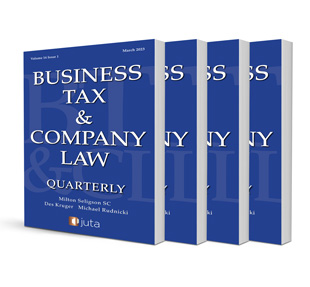How Foreign is Your Business Establishment?

How Foreign is Your Business Establishment?
Author: David Clegg
ISSN: 2219-1585
Affiliations: Tax Consultant, Cape Town
Source: Business Tax & Company Law Quarterly, Volume 14 Issue 2, 2023, p. 1 – 7
Abstract
The introduction of full residence-based taxation in 2001 brought with it the concept of a ‘Controlled Foreign Company’ (CFC), whose profits (calculated on SA income tax principles) would be attributed to qualifying South African shareholders (‘participants’) as taxable income. Exempted from attribution were those profits of a CFC which arose from a ‘business establishment’, a term which was tightly defined and relied in part upon the establishment displaying the hallmarks of a real operating business in the foreign country and not having been set up for the purpose of tax avoidance. Since those early days, the definition of what is now a ‘foreign business establishment’ (FBE) has undergone detail change. Today, and central to the definition, is the requirement that in order to qualify there must be a ‘fixed place of business’ located in the foreign country and ‘used for the carrying on of the business of the CFC , … where that fixed place of business is (inter alia) … suitably staffed with on-site managerial and operational employees … who conduct the primary operations of that business …’. Over the years there has been much comment in the tax specialist press dealing with the extent to which the operations of an FBE can be outsourced, before it is no longer ‘suitably staffed’ for conducting its primary operations. Silke and Income Tax South Africa took slightly different positions on this issue and now the SCA has handed down judgement in Commissioner for the South African Revenue Service v Coronation Investment Management SA (Pty) Ltd 2023 JDR 0295 (SCA), which sets out that court’s view on the point. In Volume 14, Issue 1 of this journal Wally Horak criticised elements of this judgment and in this edition David Clegg raises some additional concerns. These are whether the court was correct in its identification of the ‘primary operations’, and in finding that a ‘primary operation’ cannot, in principle, be outsourced. Clegg also addresses what he sees as a fundamental mistake made by the taxpayer, in setting up his foreign business.